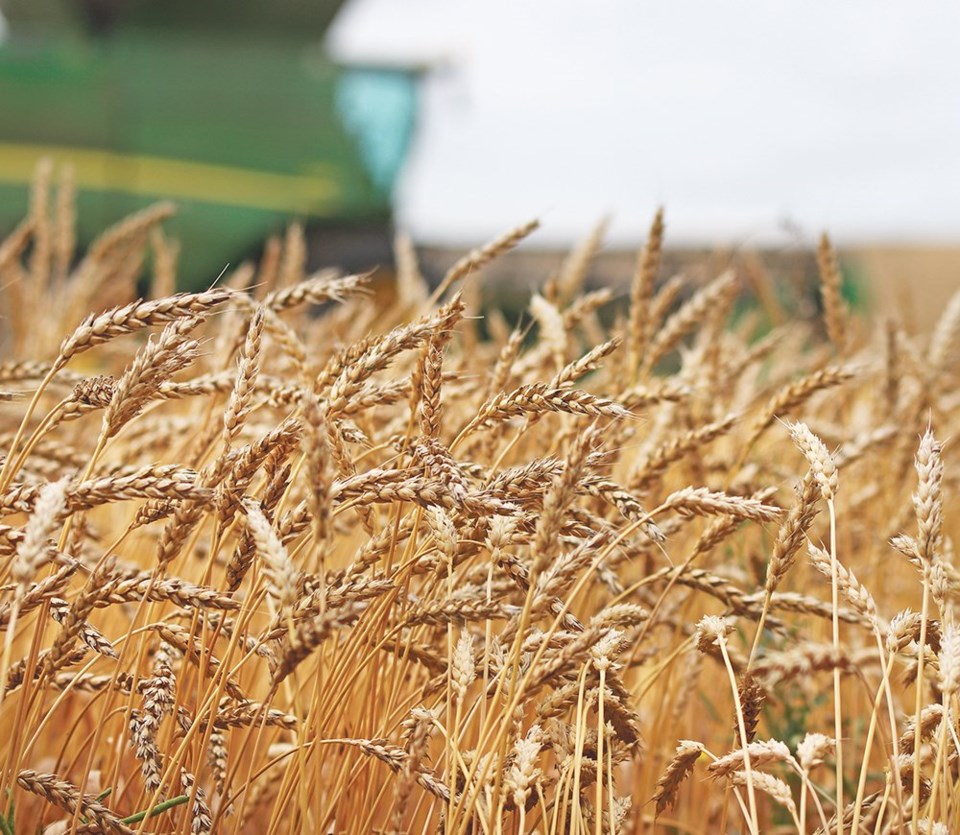WESTERN PRODUCER — Russia's invasion of Ukraine could drive up global wheat prices from 30 to 100 percent, according to a Rabobank analysis.
War is likely to at least temporarily halt Ukraine's wheat, barley and corn exports, which could cause a 30 percent hike in wheat prices and a 20 percent increase in corn, according to an analysis published by the bank on Feb. 18.
Vito Martielli, senior grains and oilseeds analyst with Rabobank, said wheat prices have already jumped about 15 percent since the report was published and Russian president Vladimir Putin declared war on Ukraine.
Where prices go from here will depend on the duration of the conflict, the severity of international sanctions against Russia and what happens to the various Black Sea ports in Russia and Ukraine, he said.
Russia is the world's largest wheat exporter. The U.S. Department of Agriculture is forecasting that it will ship out 35 million tonnes of the crop in 2020-21.
Ukraine is the world's third largest wheat exporter behind Russia and Australia with an estimated 24 million tonne export program this year.
Together the two countries account for 30 percent of global wheat exports.
Of course a lot of that wheat has already been shipped. SovEcon estimates Ukraine has six million tonnes left to export in 2020-21 and Russia another seven to 7.5 million tonnes remaining.
Rabobank said if international sanctions are still in place by July when the Black Sea harvest begins, it could "cut deeply into global grain availability."
That is a scenario that could lead to a doubling in global wheat prices from today's levels.
Wheat farmers in the Northern Hemisphere would respond by increasing wheat area and cutting back on other crops in the fall of 2022, but those crops wouldn't rebalance the market until mid-2023 when the wheat is harvested.
Kim Anderson, grain marketing specialist at Oklahoma State University, said March through June is usually a time when Black Sea
shipments subside and North American exports pick up, so the timing is good in that respect.
However, he expects there will be some disruption in Black Sea exports and that is bound to have price ramifications given the tightness in hard red winter wheat and hard red spring wheat markets.
"Any reduction in quantity would have a big impact on prices," he said.
Anderson said Russia and Ukraine account for about half of the world's hard wheat exports.
Russia's wheat exports are already down about 20 percent year-on-year. He believes Putin was bolstering domestic supplies in anticipation of the Ukraine invasion.
He thinks Ukraine's exports are bound to be disrupted by the takeover in management of the country's ports and damage caused to transportation infrastructure.
Anderson doesn't think the economic sanctions will have a big impact on Russia's exports because it is supplying wheat to places like North Africa, the Middle East and Southeast Asia.
"I don't think Egypt or anybody else is going to be putting sanctions on them," he said.
Martielli said the sanctions from the United States and other western countries will have a big impact on Russia's financial system and that could have a trickle-down effect on how exporters get paid for their shipments.
He expects higher prices for Black Sea wheat to alter trade flows. For instance, it could reduce sales to countries in Sub-Saharan Africa where Russia had been making big inroads.
"We have seen already some rationing in demand for imports from last year because the prices are already high," said Martielli.
Rabobank noted that while wheat and corn are the crops that will have the biggest fallout, the war could also disrupt vegetable oil markets.
Russia and Ukraine account for 15 percent of total global vegetable oil exports, with the bulk of that being sunflower oil. Rabobank is forecasting a 20 percent increase in world vegetable oil prices under the scenario of war combined with effective sanctions.
Fertilizer prices could rise another 20 to 40 percent if key exports from Russia and Belarus are disrupted. It will also result in higher fertilizer production costs in places like Europe, which rely on natural gas shipments from Russia.

